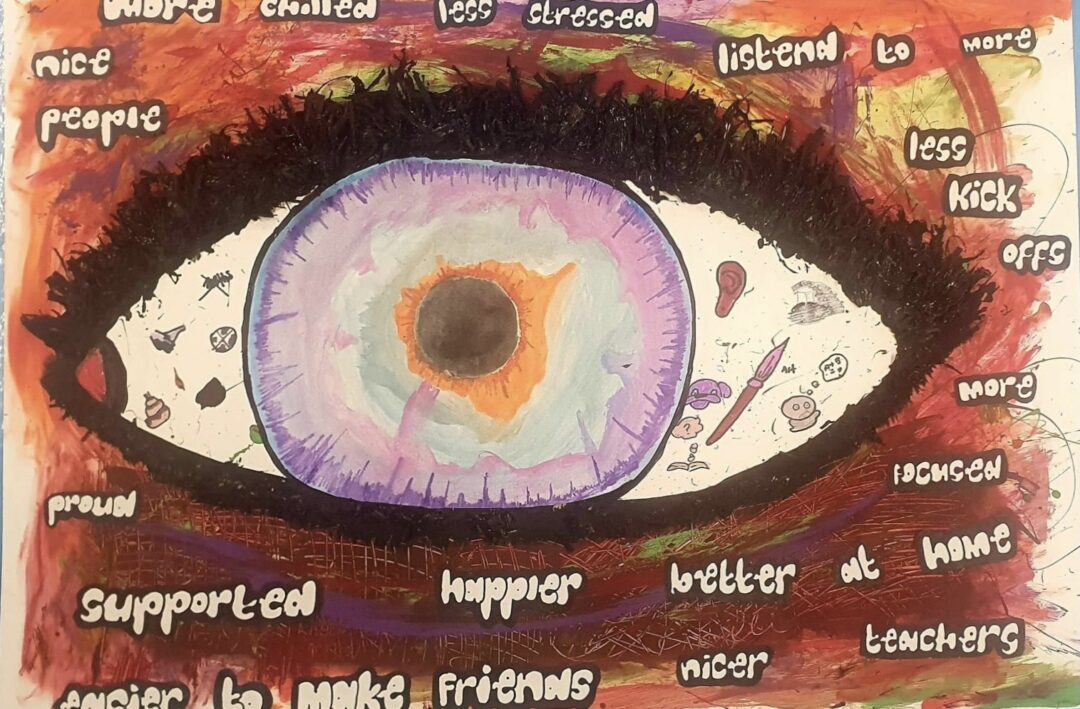Girls’ experiences of mental health and wellbeing support in alternative education: Sharing best practice and communicating needs
Quick-read summary
Schools are important places for young people. They help young people to learn new things and can help them to feel healthy, happy and looked after. But for some young people, school can be difficult, so they need to go to alternative education to learn and get the right kind of support for them.
For a long time, alternative education has been made up mostly of boys but there are now more girls going to alternative education too. We don’t know much about what alternative education is like for girls so it’s important that we find this out to make sure that alternative education is working for them.
Through this project, researchers worked with 13 girls from alternative education settings across the North East of England. They asked them about what alternative education is like for them and what kinds of things they wanted other people to know about alternative education.
Who is this evidence useful for?
School staff, youth workers, education policymakers, parents/carers and others.
What is the issue
- Schools are important places. They help young people to learn new things and can help them to feel healthy, happy and looked after as they grown up.
- For some young people, school can be difficult so they need to go to alternative education to learn and get the right kind of support for them
- Most of the young people in alternative education are boys, and for a long time the activities in alternative education were set up mostly for boys, but there are some girls in alternative education too
- We don’t know much about what alternative education is like for girls; what helps to make them feel happy and looked after while they are there, and whether anything needs to change to help girls more
Research summary
- We worked with 13 girls aged 14-16 years from alternative education settings across the North East of England
- We asked the girls about what alternative education is like for them
- We asked the girls what information they would like other people to know about alternative education. The girls shared their ideas through drawings, photographs, notes and mind maps, which we shared online.
What the research found
- Relationships are important: girls felt that staff in alternative education had time to help them when they needed it and they could get this help easily. Having female staff there to talk to was important for some girls when they needed to talk about health issues. Some felt sad about leaving friends behind in their old schools when they moved to alternative education.
- More choices and chances: girls talked about how staff in alternative education helped them to work through tough days so they were more likely to stay and do their work. They could go and work in different spaces in alternative education and felt like they were given more chances to think about their actions.
- Not ‘just naughty kids’: girls talked about how alternative education is seen as a place that is just for ‘naughty kids’ and they wanted people to know that it’s not. Young people go to alternative education for lots of different reasons and it’s not always related to poor behaviour. Alternative education is usually a calm place to be.
A website has been developed to share the findings: www.tinyurl.com/GirlsInAltEd
The site includes notes and drawings from the girls who took part in the project.
Why is this important?
- The project showed that adults can learn a lot from listening to young people about their experiences
- Relationships are important in schools but are often not thought about enough, especially in relation to how they might make a difference to learning
- Alternative education gives some young people the chance to learn and get help with things they’re struggling with and should be valued for this
- Seeing alternative education as a negative place linked to poor behaviour could lead people to make poor judgements about the young people who go to alternative education
How were people involved in this work?
- The project was developed with Chrissy Hardy (Public Health Practitioner) from South Tyneside Council/Academic Wellbeing Hub. Chrissy spoke to alternative education providers and school improvement teams in South Tyneside and Sunderland, and they said that they would like to know more about girls’ experiences in alternative education.
- Girls aged 14-16 years from alternative education settings in the North East of England took part in the project activities
- The materials from the project were reviewed by girls from alternative education settings and school and college staff before they were shared with other interested people
What’s next?
- Young people should be given more chances to talk about their experiences of education and say what is important to them
- More work needs to be done to help people to understand what alternative education is and why it works better for some young people
Get in touch about this research
Lead researcher name: Pamela Louise Graham
Email address: [email protected]
This project was funded by the NIHR Applied Research Collaboration (ARC) North East and North Cumbria (NENC) through its Open Funding Competition.

